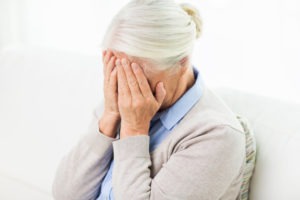Nursing home abuse: the term conjures up images of shady nursing home employees yelling or verbally abusing residents, stealing valuables from residents, or (in some cases) striking residents. A nursing home whose employees mistreat or abuse residents can be held responsible for the injuries those employees cause. But what about injuries caused by other residents? A study conducted by Weill Cornell Medical College in New York City and encompassing 2,000 people in ten New York skilled nursing facilities found:
- Six percent of residents hit, kicked, or bit other residents;
- Sixteen percent of cases of disruptive resident-on-resident; and
- Ten percent of residents experienced a resident who wandered into his or her room uninvited or who were observed going through the resident’s personal possessions.
Although the study focused solely on nursing home residents, the type of behavior documented in the study occurs at nursing homes in New York, South Carolina, and across the nation. What liability – if any – does a nursing home have if a resident is injured by another resident?
The Duty of Care of a Nursing Home
A personal injury lawsuit focuses on the defendant’s (that is, the person alleged of acting carelessly) legal duty of care, the breach of that duty of care by negligent conduct, and injuries suffered by the victim/plaintiff. In most cases, the “duty of care” owed in any personal injury lawsuit is the duty to conduct one’s self in a reasonably careful manner. Except in a few limited situation, a duty of care cannot be breached by inaction. That is, even if the defendant observed a car barreling toward a pedestrian and could save the pedestrian without endangering him- or herself or the pedestrian, it is not a breach of the duty of care if the defendant does not help the pedestrian avoid the collision.
A nursing home is a bit different. There, the nursing home is assuming a legal obligation to care for the residents it chooses to accept. This means that the duty of care is breached by inaction: the nursing home simply cannot “do no harm” to the residents but it must take reasonable measures to ensure the residents within its care are safe – both from its own employees as well as abuse at the hands of other residents
What “Reasonable Measures” Must a Nursing Home Take?
Nursing homes should take reasonable measures to protect its residents from abuse and mistreatment at the hands of other residents. This can include:
- Adequately staffing the facility with employees to monitor residents;
- Secluding residents who have a history or tendency to be abusive toward others;
- Responding promptly and appropriately to resident concerns and reports.
If you or a loved one has been injured in a nursing home at the hands of another resident, an intensive investigation into your case may reveal that the nursing home is legally responsible for allowing your injuries to occur. Contact Greenville nursing home injury attorney David R. Price, Jr. for prompt and knowledgeable legal assistance to protect your rights. Contact his office by calling (864) 271-2636 today.

David Price is a Personal Injury, Civil Litigation, Collections, and Criminal Defense Attorney who practices in Greenville, SC. He graduated from the University of Georgia School of Law, and has been practicing law for 12 years. David Price believes in helping those who have been injured. Learn more about his experience by clicking here.

